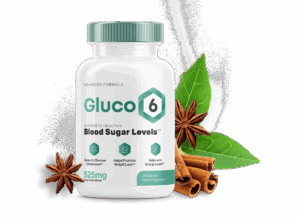Beginning a weight loss journey can seem overwhelming, especially with countless diet options available. The key to success lies in choosing a plan that fits your lifestyle and nutritional needs. For beginners, understanding the best weight loss diets involves learning about their principles, benefits, and how they align with personal goals. In this guide, we will explore various diet plans, equipping you with the knowledge needed to make informed decisions, paving the way to a healthier you.
Understanding Calorie Counting for Beginners
Calorie counting serves as a cornerstone for many weight loss strategies, providing a clear picture of your intake and output balance. The concept is simple: every food and drink contains calories, and your body requires a certain number to function daily. Consuming fewer calories than your body needs results in a calorie deficit, which is essential for weight loss.
To start calorie counting, begin by identifying your daily caloric needs. Numerous online calculators can help estimate this number based on your age, gender, weight, height, and activity level. Once you have your target, the next step is tracking everything you consume with precision.
Using tools and apps makes calorie counting more manageable and accurate. Apps like MyFitnessPal, Lose It!, and Cronometer allow users to scan barcodes, search an extensive food database, and even customize their own recipes. These apps not only provide a platform for tracking but also give you insights into your macro and micronutrient intake, helping refine your eating habits.
Maintaining a calorie deficit doesn’t mean you need to constantly feel hungry. Choosing foods that are low in calories but high in volume can help. Opt for meals that include lots of vegetables, lean proteins, and whole grains. For example, a grilled chicken salad loaded with colorful veggies, dressed sparingly with vinaigrette, is both filling and low-calorie. Snacks like a small apple with a tablespoon of peanut butter or Greek yogurt with a sprinkle of granola can satisfy hunger without exceeding your calorie budget.
Remember, the quality of calories matters too. Prioritize nutrient-dense foods that provide vitamins and minerals necessary for optimal health. Incorporating regular exercise, such as workouts discussed in our guide on the best home workouts for beginners, can enhance your journey by boosting your calorie expenditure, thus making your deficit more effective.
As you embrace calorie counting, patience and consistency will be your allies. It’s not just about cutting back; it’s about understanding your habits and making informed choices to support lasting weight loss.
Exploring the Mediterranean Diet
The Mediterranean diet is a lifestyle choice rooted in the culinary traditions of countries bordering the Mediterranean Sea. Emphasizing fruits, vegetables, lean proteins, and healthy fats like olive oil, this diet is praised for its heart-healthy benefits and weight loss potential.
Central to this dietary approach is an abundance of fresh produce, such as tomatoes, leafy greens, and citrus fruits. These are typically combined with whole grains, legumes, and nuts to form the diet’s foundation. The inclusion of lean proteins, such as fish and poultry, along with limited red meat, ensures a balance that supports muscle health and satiety.
Olive oil, a staple of Mediterranean cuisine, is rich in monounsaturated fats, known to reduce inflammation and lower the risk of heart disease. This, paired with antioxidant-rich foods, contributes to the diet’s reputation for promoting a healthy heart and overall longevity.
A sample day on the Mediterranean diet might start with a breakfast of Greek yogurt topped with fresh berries and nuts, providing a mix of protein and healthy fats. Lunch could feature a quinoa salad with cherry tomatoes, cucumbers, and feta cheese, drizzled with olive oil and lemon juice. For dinner, a grilled fish fillet accompanied by roasted vegetables seasoned with herbs like rosemary and thyme completes the day with vibrant flavors and essential nutrients.
Beyond its nutritional benefits, the Mediterranean diet also embraces the cultural richness of the region’s food. Meals are often social events, encouraging mindful eating and communion with others. This cultural aspect is key to understanding why the Mediterranean diet is often associated with longevity and wellness.
For those looking to integrate the Mediterranean lifestyle into their routine, combining it with exercises such as best home workouts for beginners can enhance weight loss efforts and improve overall health. This synergy of diet and activity creates a sustainable path to a healthier lifestyle, making the Mediterranean diet a highly recommended choice for those beginning their weight loss journey.
The Advantages of a Plant-Based Diet
A plant-based diet emphasizes whole foods like legumes, vegetables, and whole grains while minimizing animal products. This approach not only supports weight loss but can improve overall health. A considerable body of scientific research backs these claims. For instance, a study published in the Journal of the American College of Nutrition found that a plant-based diet leads to more significant weight loss than omnivorous diets, attributing it to reduced calorie intake and increased fiber consumption.
Fiber-rich foods like beans, lentils, and vegetables can aid digestion and promote satiety, preventing overeating. Whole grains such as quinoa and oats provide complex carbohydrates for sustained energy, reducing cravings for unhealthy snacks. The reduction or elimination of processed meats can also lead to an overall decrease in calorie intake, further supporting weight loss.
Transitioning to a plant-based lifestyle can initially seem daunting, but with some planning, it becomes more manageable. Start by incorporating more plant-based meals into your weekly menu. Meal prepping can make this transition smoother, allowing you to prepare healthy meals in advance. Additionally, focus on finding plant-based protein sources like tofu, tempeh, and chickpeas to ensure you’re meeting nutritional needs.
Success stories abound, with many individuals reporting significant weight loss after adopting a plant-based diet. For example, Jane, a previously self-proclaimed meat lover, managed to shed 20 pounds within a few months. She credits her success to embracing a plant-rich diet and staying consistent with meal prepping.
For those interested in enhancing their fitness journey alongside dietary changes, exploring home workouts can be a great complement. Check out this guide to best home workouts for beginners to keep yourself active and boost your weight loss efforts.
Scientific studies and personal accounts underscore the benefits of a plant-based diet for weight loss and health improvements. By prioritizing whole, nutrient-dense foods and reducing reliance on animal products, you can set yourself on the path to lasting health and wellness.
Best Weight Loss Diets for Beginners: Low-Carb Diets Explained
Low-carb diets, such as the ketogenic diet, focus on reducing carbohydrate intake to encourage the body to use fat as its primary energy source. This shift can initiate rapid weight loss as the body enters a state called ketosis. In ketosis, rather than relying on glucose from carbs for energy, the body burns stored fat, leading to significant weight reduction.
The principles of a low-carb diet include limiting foods like bread, pasta, and sugar. Instead, you consume more protein and healthy fats, which can increase satiety and reduce overall calorie intake. A typical ketogenic macronutrient ratio is approximately 70% fats, 25% protein, and 5% carbs. This diet not only promotes weight loss but can also lead to improved mental clarity and energy levels.
For beginners, one challenge can be the initial “keto flu,” a group of symptoms such as headaches and fatigue. This occurs as the body adapts to burning fat for fuel. Staying hydrated and supplementing electrolytes like potassium and magnesium can mitigate these effects. Another hurdle is social situations where high-carb foods are prevalent. Planning ahead and bringing low-carb alternatives can help avoid potential setbacks.
To ease into a low-carb lifestyle, beginners can start with simple meal swaps. Consider a veggie omelette with avocado instead of cereal for breakfast. For lunch, swap a sandwich for a salad with grilled chicken and olive oil dressing. Dinner might include baked salmon with a side of steamed broccoli and butter. Snacks could be nuts, cheese, or hard-boiled eggs, offering both nutrition and satisfaction.
Incorporating low-carb meals into your daily routine can support weight loss and enhance overall well-being. To maximize success, pair your diet with regular physical activity. Check out our best home workouts for beginners to complement your dietary efforts. These workouts, paired with a balanced diet, create a holistic approach to health and fitness for lasting results.
Final words
Choosing the right diet plan is pivotal for successful weight loss and overall health. As we’ve explored, each diet has unique benefits tailored to different nutritional needs and lifestyles. Starting your journey with the best weight loss diets for beginners can not only lead to sustainable weight loss but also foster a positive relationship with food and health. Remember, your approach should align with your personal goals and body needs. To continue learning and staying motivated, I invite you to explore more articles on our platform, as we’ve curated content to support your health journey.





Java Burn
$ 79,00Original price was: $ 79,00.$ 49,00Current price is: $ 49,00.Hepato Burn
$ 79,00Original price was: $ 79,00.$ 49,00Current price is: $ 49,00.Balmorex Pro
$ 79,00Original price was: $ 79,00.$ 49,00Current price is: $ 49,00.Gluco6
$ 69,00Original price was: $ 69,00.$ 39,00Current price is: $ 39,00.